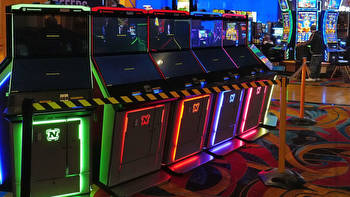From Racetracks to Online Slots: The Progression of PA's Gambling Scene
Typography
Early Beginnings: Horse Racing
The origins of legalized gambling in Pennsylvania can be traced back to horse racing. During the late 1950s and early 1960s, the state saw the construction of its first racetracks, which were primarily designed for harness racing. This was the state's initial foray into regulated gambling, allowing residents to legally enjoy and wager on horse races.
Bingo and Lottery: The 1970s
The 1970s witnessed a growing acceptance of gambling activities in the state. In 1971, Pennsylvania legalized bingo for nonprofit organizations, allowing these entities to raise funds through this popular game.
However, a more notable development came in 1971 when the Pennsylvania Lottery was established. Introduced initially to generate funds for programs benefiting older residents, the PA Lottery has since expanded its offerings over the years and has become a significant revenue source for the state.
Riverboat Casinos and Expansion: The 2000s
The new millennium brought with it a significant shift in Pennsylvania's gambling landscape. The Pennsylvania Race Horse Development and Gaming Act was passed in 2004, which permitted the construction and operation of slot machines at designated establishments. Initially, the idea was to boost the horse racing industry by introducing racinos – a combination of racetracks and casinos.
The law's success and the growing demand for more comprehensive gambling options led to its expansion in 2010. This amendment permitted table games like poker, blackjack, and roulette at licensed casino establishments.
While many states during this period were looking into riverboat casinos as a form of gambling, Pennsylvania took a different approach. Instead of floating casinos, the state established land-based casinos, some of which became prominent attractions, such as the Rivers Casino in Pittsburgh and the Parx Casino in Bensalem.
Online Gambling and Sports Betting: Modern Era
Understanding the digital age's trajectory and the significant revenue potential online platforms could bring, Pennsylvania took proactive steps. In 2017, a comprehensive gambling expansion bill was signed into law, allowing online casinos, online poker, and sports betting. By 2019, the first online casinos launched in the state, allowing residents to play their favorite games from the comfort of their homes.
Moreover, the reversal of the Professional and Amateur Sports Protection Act (PASPA) by the Supreme Court in 2018 opened the doors for states to legalize sports betting. Pennsylvania was among the early adopters, with its first legal sports wager taken in November 2018.
Conclusion: A Model State
Pennsylvania's journey through the intricacies of gambling regulation has made it a model for other states considering expanding their gambling offerings. The state has shown that with proper regulations, oversight, and an understanding of residents' needs, gambling can be a lucrative source of revenue without compromising the welfare of its citizens.
From humble beginnings with horse races to today's bustling online casinos and sportsbooks, Pennsylvania's gambling history is a testament to adaptability, economic foresight, and a commitment to providing safe, regulated entertainment options for its residents. As the state continues to adapt to new forms of gambling and changing dynamics, it remains a pivotal player in the nation's gambling narrative.






























